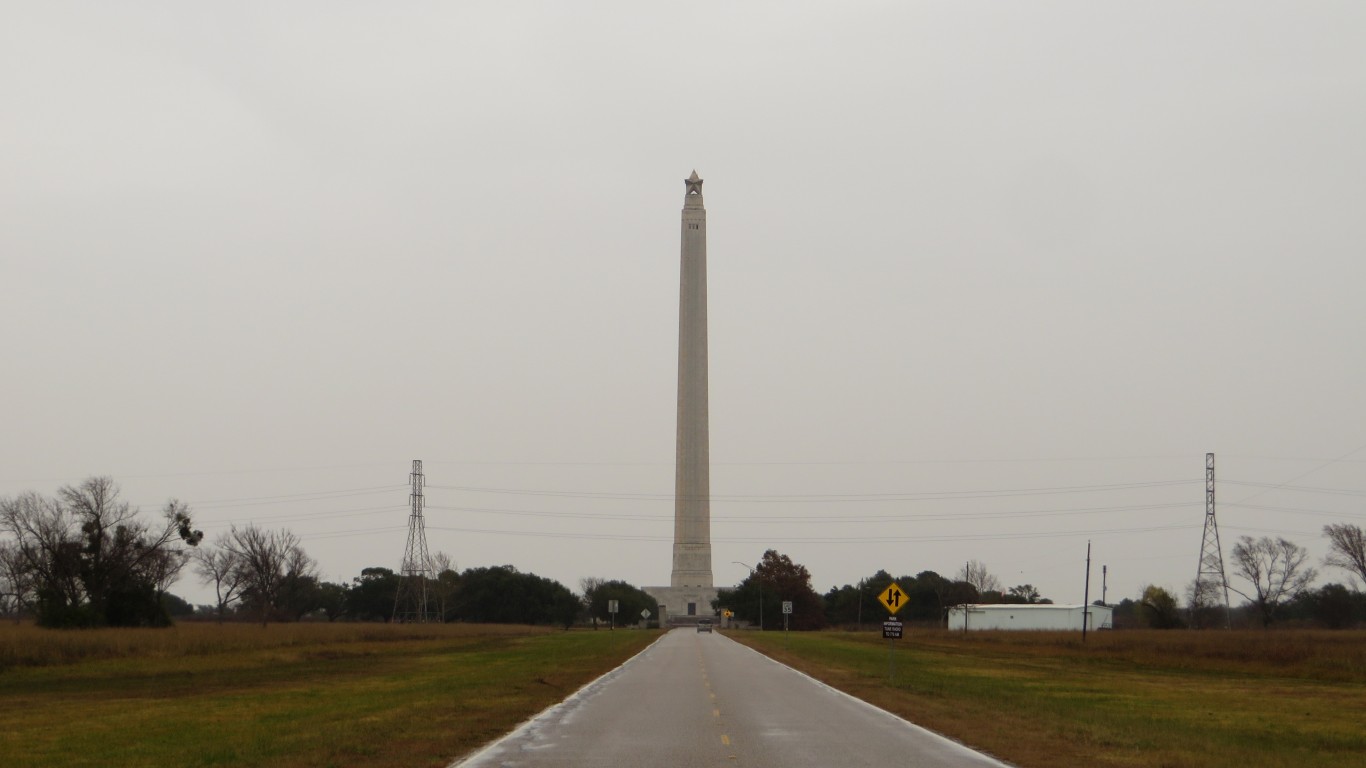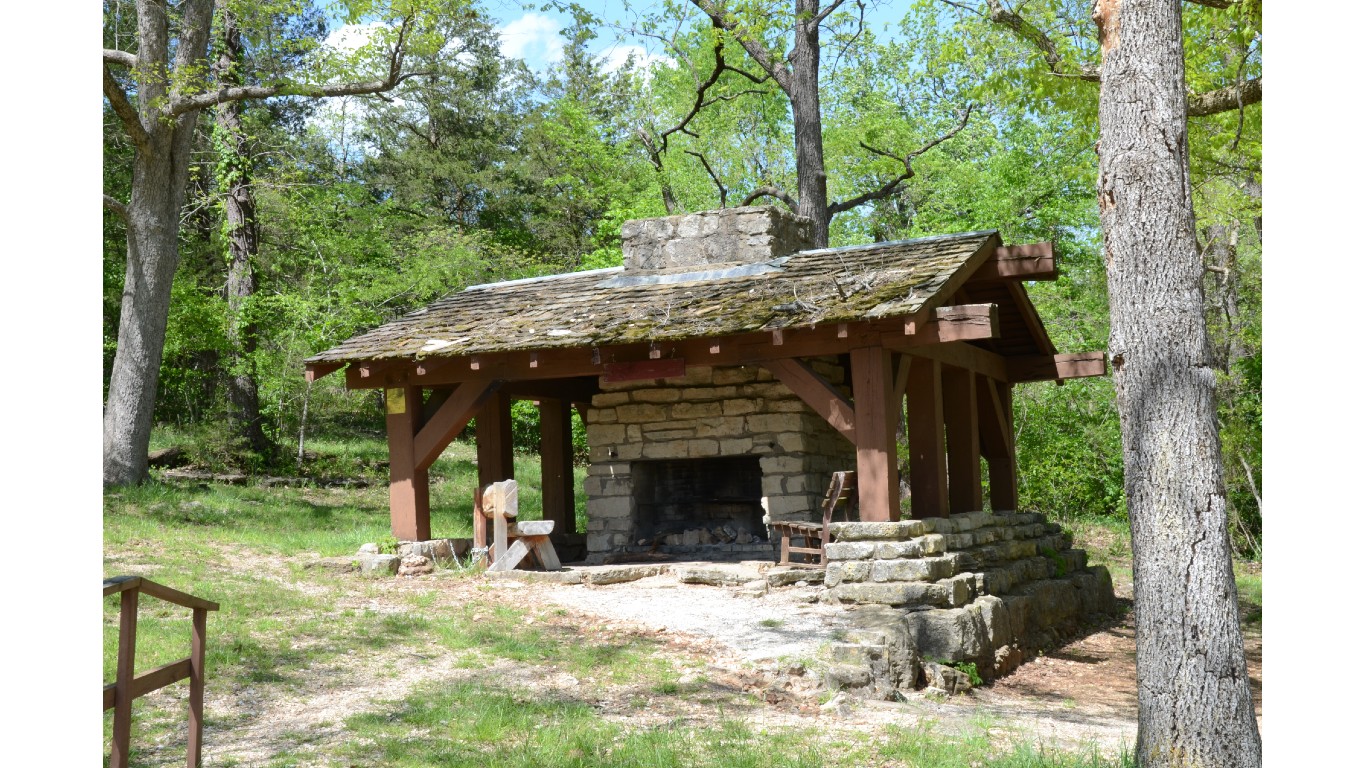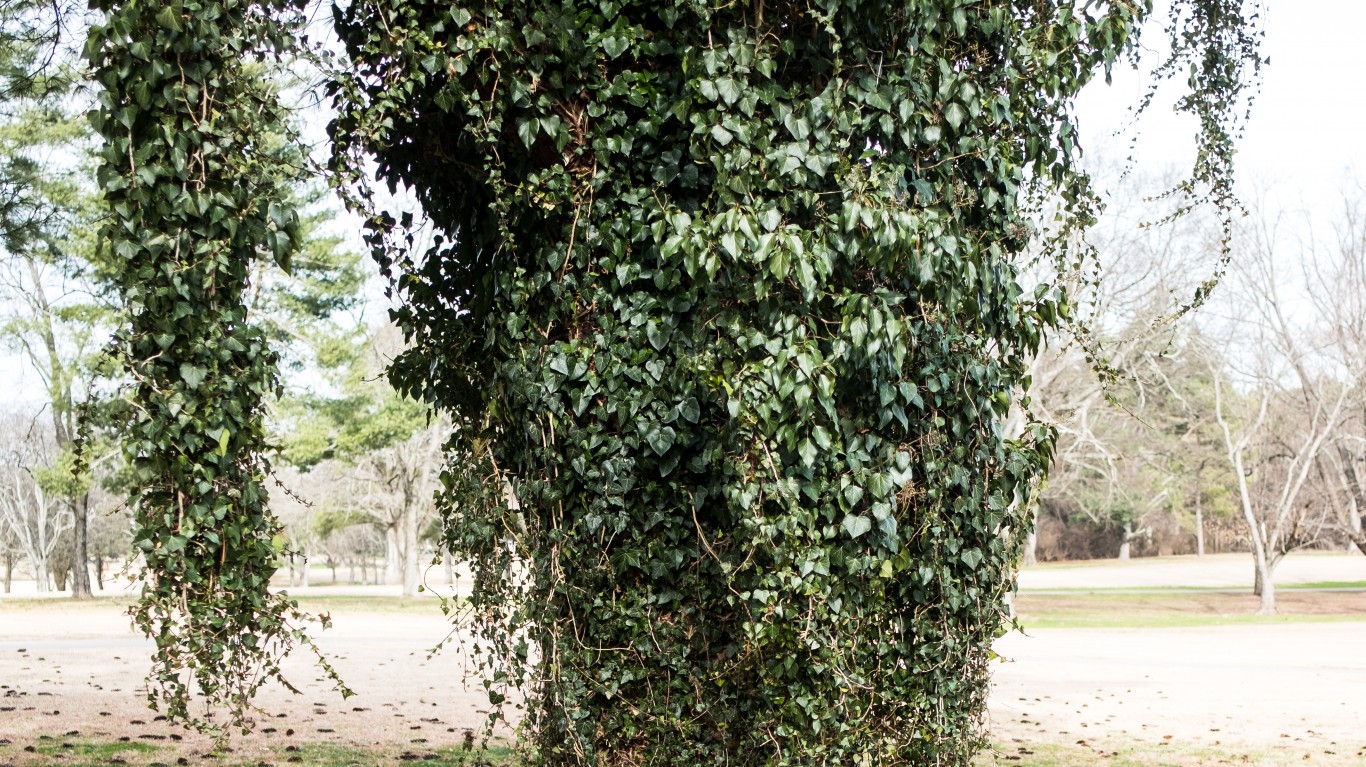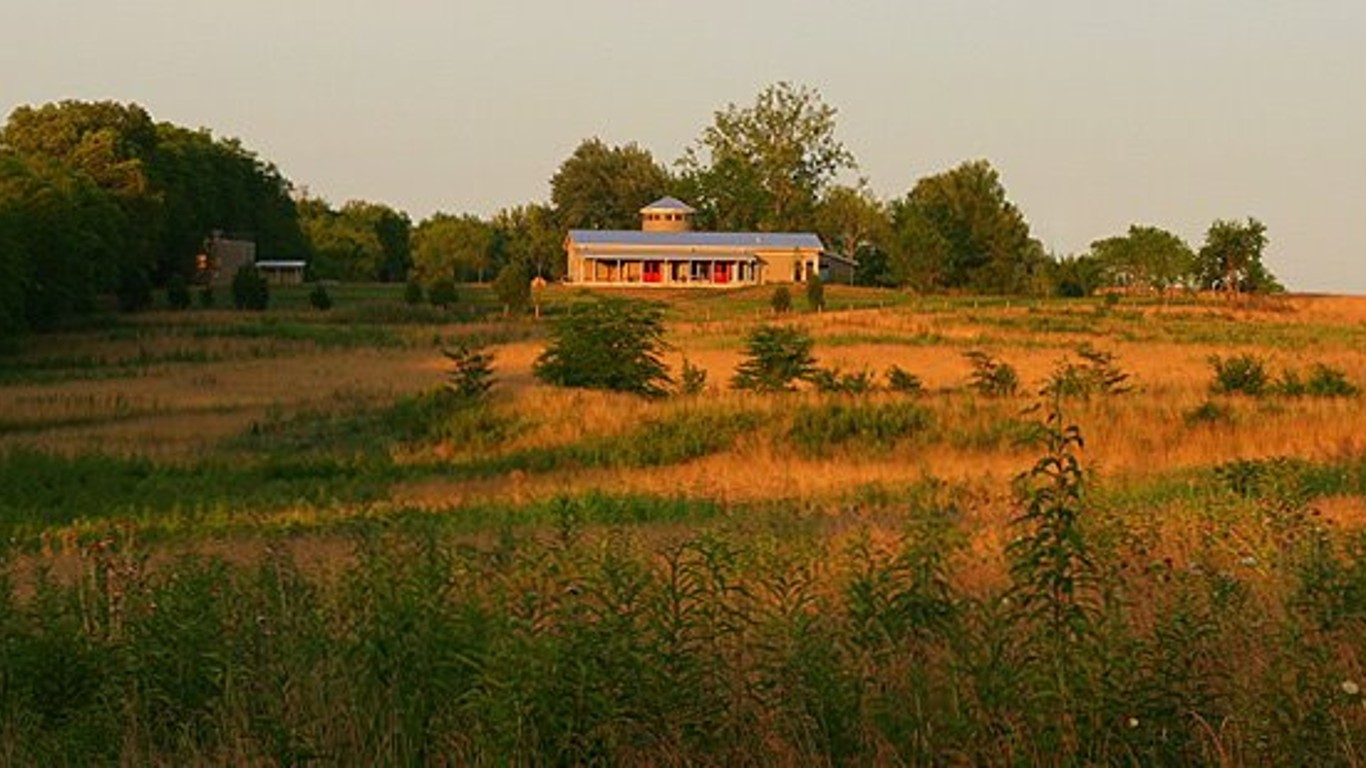
With the arrival of summer, people yearn to be outside at a picnic, playing sports, fishing, or hiking, among many other activities. But for some of us, summer can be brutal because of hay fever, an allergic reaction to pollen – the grains or tiny seeds of flowering plants, trees, and grasses, which can be carried on the wind. The reaction can manifest itself with itchy skin, watering eyes, and sneezing. The condition, also called allergic rhinitis or nasal allergies, can be especially acute in a handful of states.
To find the 20 worst city parks for hay-fever sufferers, 24/7 Wall St. listed the worst parks based on the report Seasonal Allergies: The Best And Worst Parks For Hay Fever Sufferers from YorkTest, a British health and wellness company. YorkTest used The Trust for Public Land’s list of the 150 Largest City Parks across the U.S. and analyzed the expected grass pollen levels in each geographic area over the course of a five-day period using the Pollen Count app. Parks were ranked based on the average pollen level in grains of grass pollen per cubic meter for the five-day period.
Hay fever symptoms usually start after someone is exposed to the allergen. Allergens can be tree, grass, and ragweed pollen (though grass pollen is more common in summer), as well as dust mites and cockroach droppings, dander from pets, spores from indoor and outdoor fungi and molds. (These are the worst cities for people with grass allergies.)
Allergens can trigger the immune system, which misidentifies harmless airborne substances as harmful. In response, the immune system generates antibodies to protect against the allergen. The antibodies signal the blood vessels to expand and generate inflammatory chemicals, such as histamine. It is this reaction that causes common hay fever symptoms such as runny nose, watery, itchy, red eyes, sneezing, cough, itchy nose and roof of mouth or throat, and swollen skin under the eyes.
According to the Centers for Disease Control and Prevention, there are about 19 million hay fever sufferers in the U.S. It would be best if they avoided the South – 18 of the 20 parks on the list are in Southern states. Tennessee is ground zero for hay fever.
YorkTest found that nine parks within Nashville, Tennessee, are among those most likely to have the highest pollen counts. Besides Tennessee, North Carolina can be difficult for those who get hay fever. The Tar Heel State has three parks on the list. Texas, Arkansas, and Kentucky have two parks each on the list. (Also see, America’s most visited city parks.)
Click here to see the worst city parks for people with allergies

20. Newport News Park
> Location: Newport News, Virginia
> 5-day avg. pollen count: 45.2 grains per cubic meter
[in-text-ad]
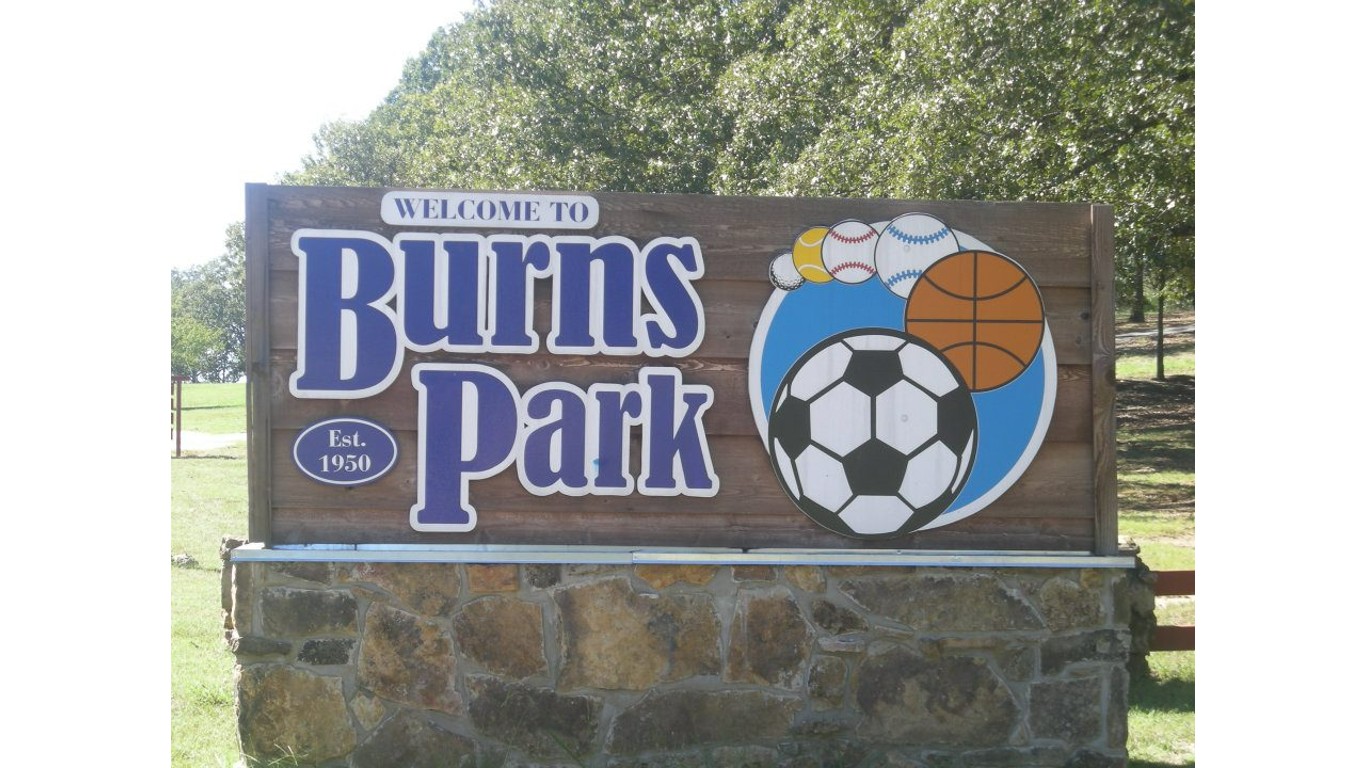
19. Burns Park
> Location: North Little Rock, Arkansas
> 5-day avg. pollen count: 45.8 grains per cubic meter
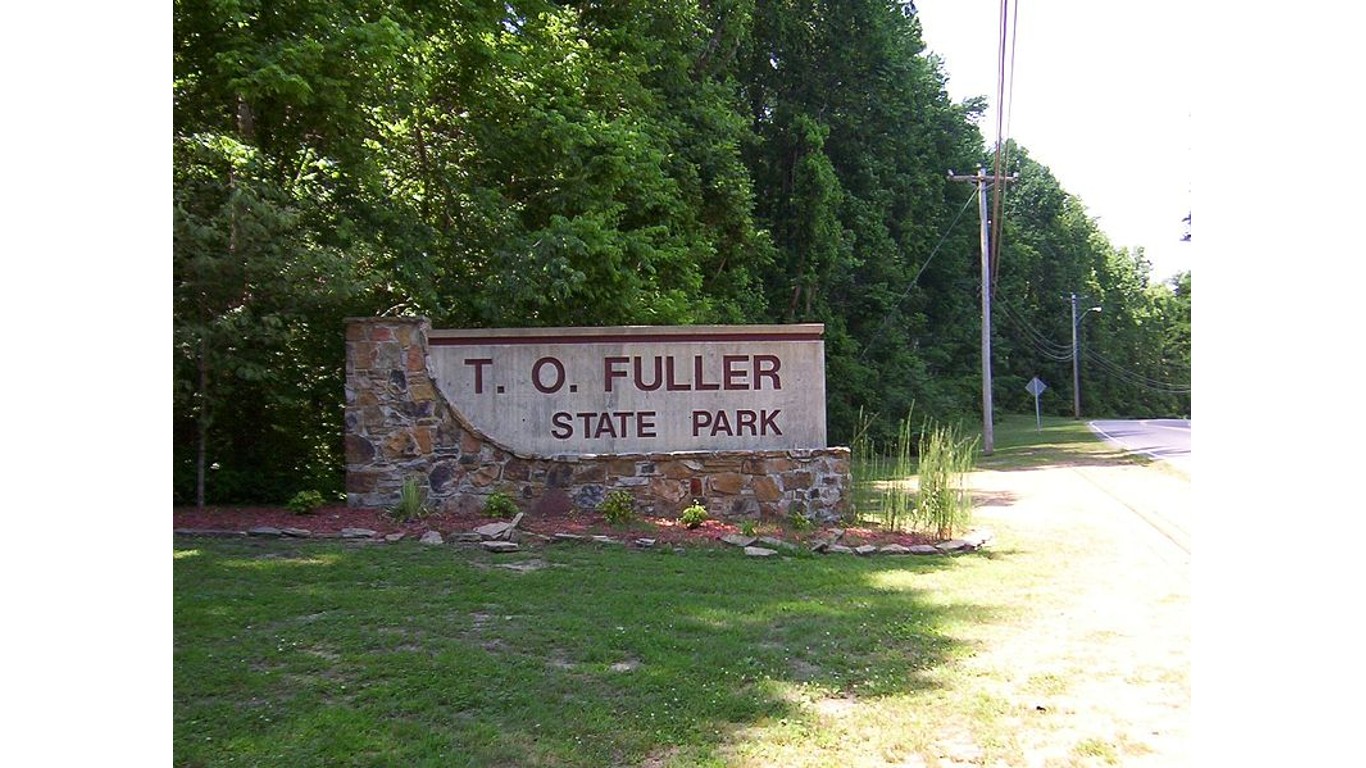
18. T.O. Fuller State Park
> Location: Memphis, Tennessee
> 5-day avg. pollen count: 47.8 grains per cubic meter
18. William B Umstead State Park
> Location: Raleigh, North Carolina
> 5-day avg. pollen count: 47.8 grains per cubic meter
[in-text-ad-2]
17. Anderson Lake County Park
> Location: San Jose, California
> 5-day avg. pollen count: 48.2 grains per cubic meter

15. Bryan Park
> Location: Greensboro, North Carolina
> 5-day avg. pollen count: 53.2 grains per cubic meter
[in-text-ad]
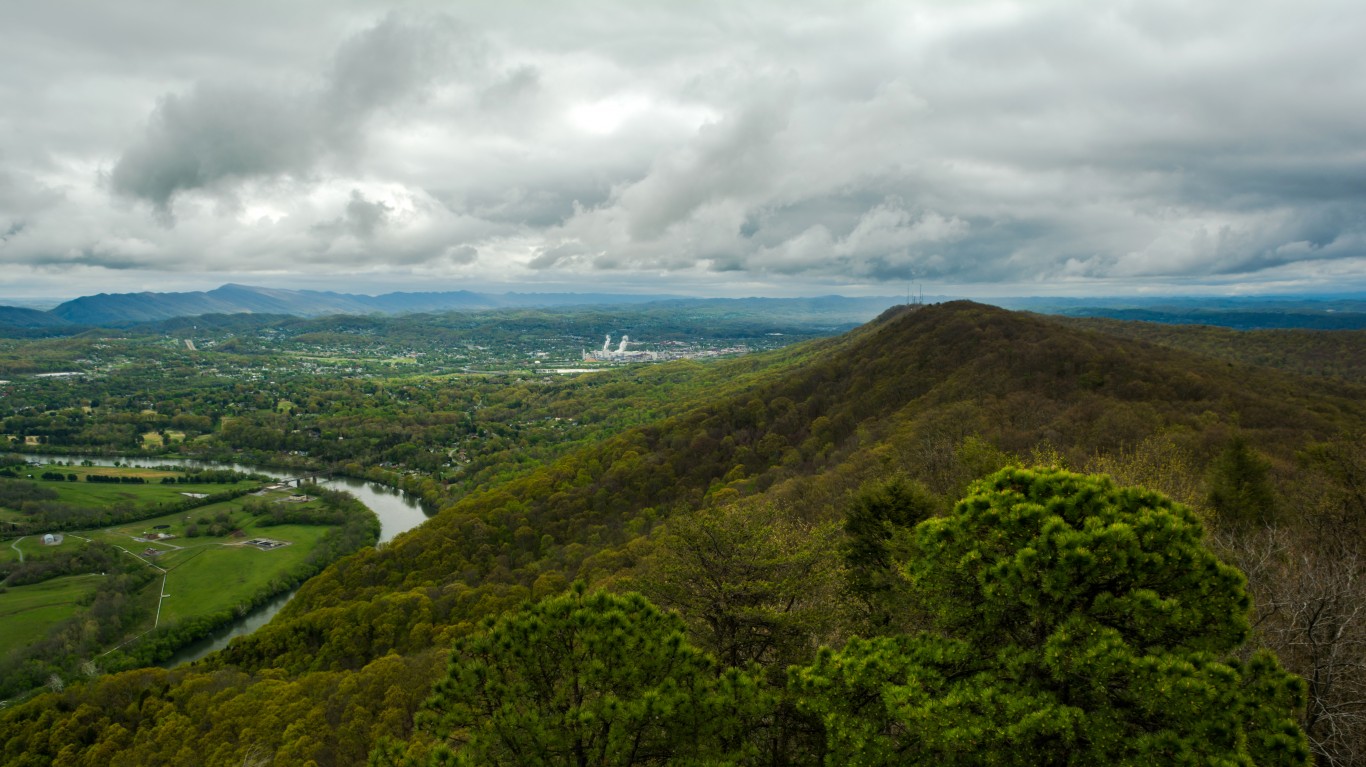
15. Bays Mountain Park
> Location: Kingsport, Tennessee
> 5-day avg. pollen count: 53.2 grains per cubic meter
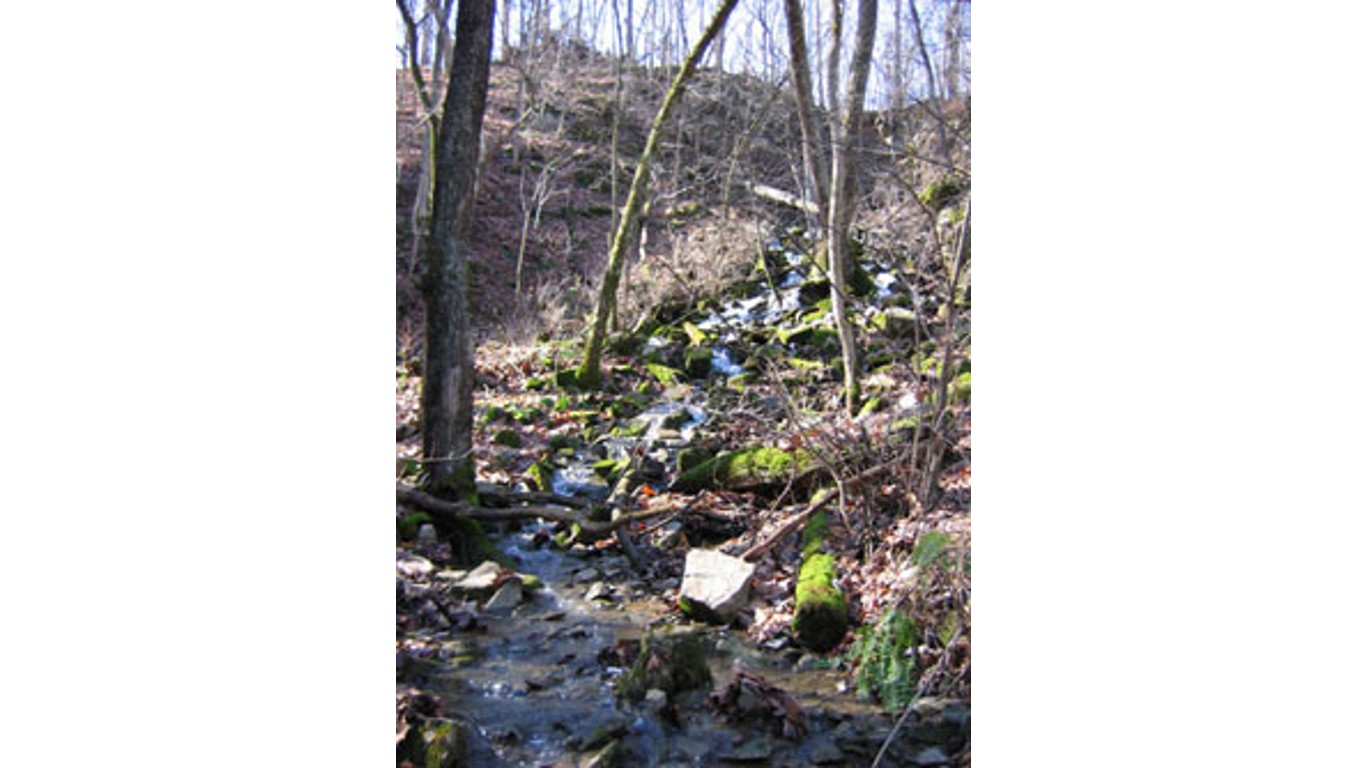
14. Otter Creek Park
> Location: Louisville, Kentucky
> 5-day avg. pollen count: 61.2 grains per cubic meter
13. San Jacinto Battleground State Historic Site
> Location: La Porte, Texas
> 5-day avg. pollen count: 66.0 grains per cubic meter
[in-text-ad-2]

12. Bell’s Bend Park
> Location: Nashville, Tennessee
> 5-day avg. pollen count: 66.2 grains per cubic meter
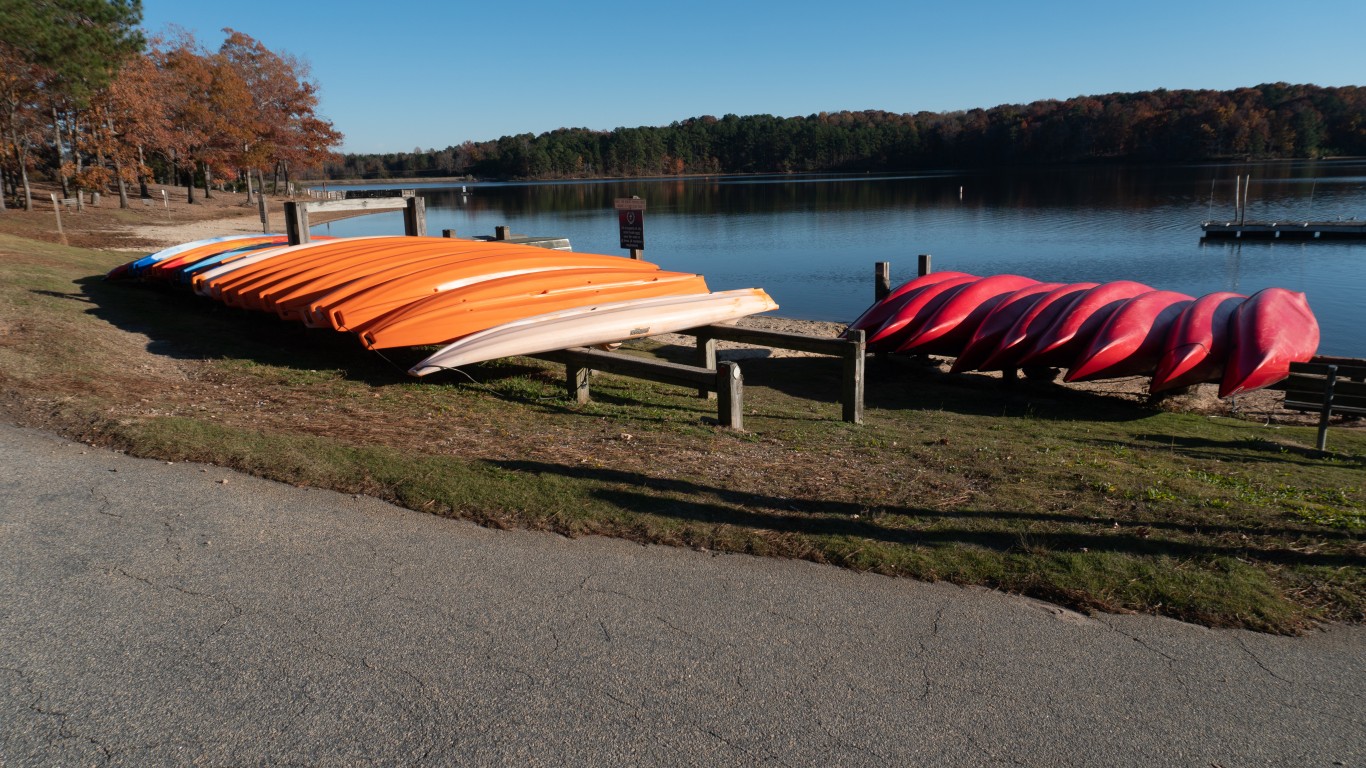
11. Lake Wheeler Park
> Location: Raleigh, North Carolina
> 5-day avg. pollen count: 69.4 grains per cubic meter
[in-text-ad]
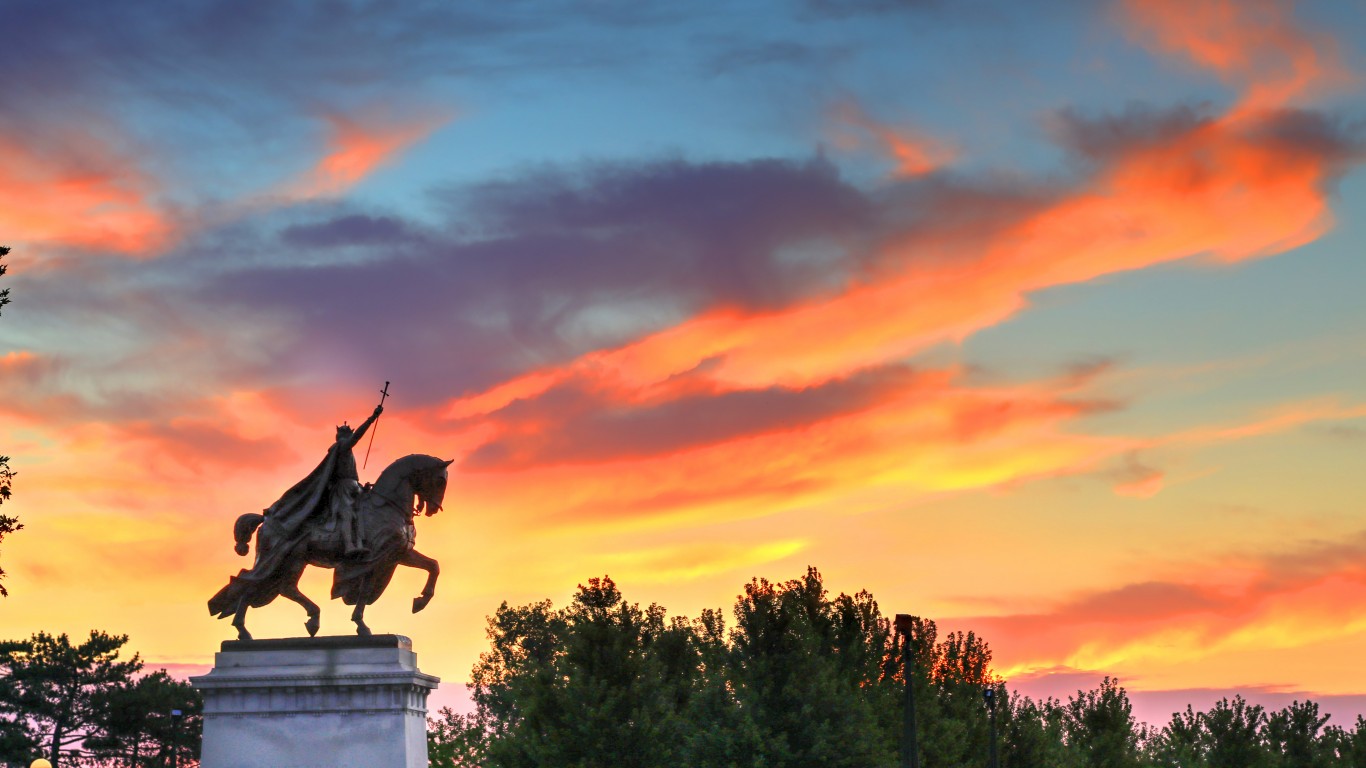
10. Forest Park
> Location: St.Louis, Missouri
> 5-day avg. pollen count: 69.8 grains per cubic meter
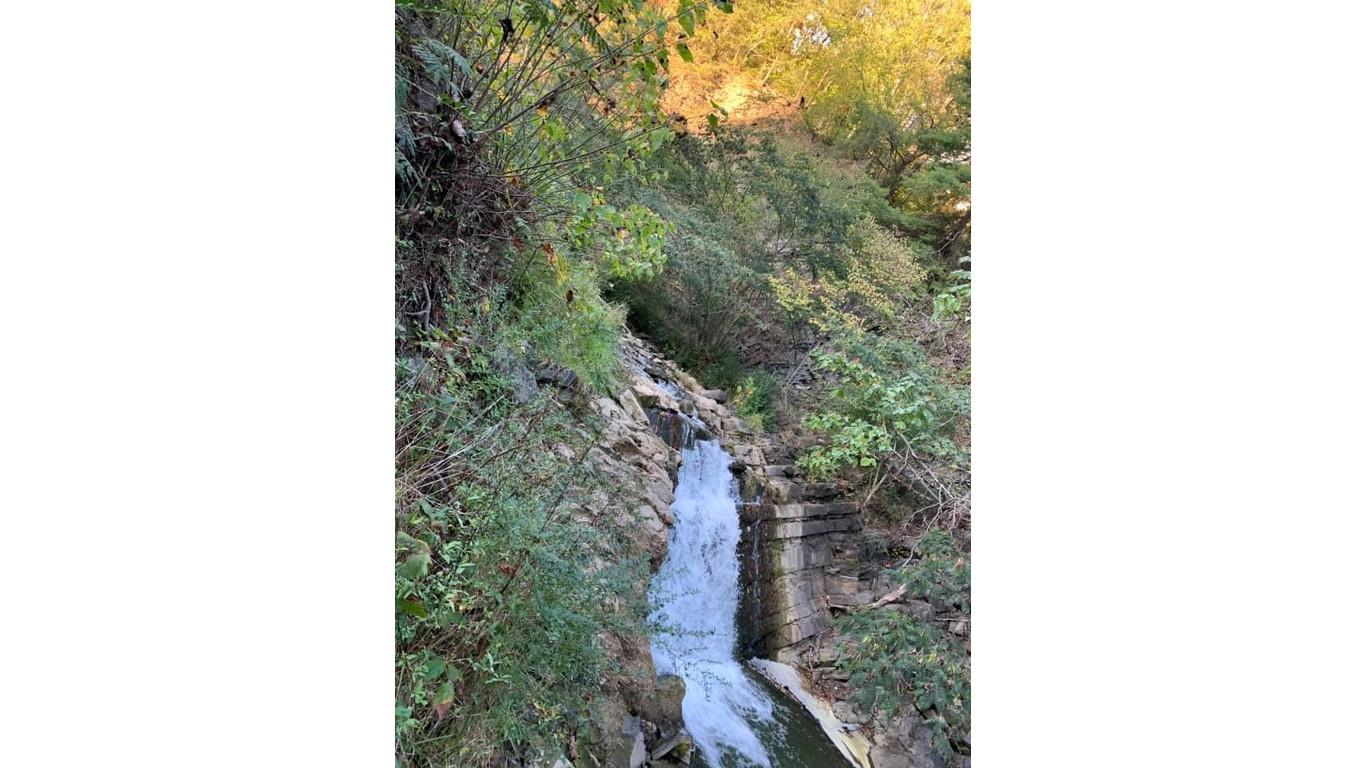
9. Steele Creek Park
> Location: Bristol, Tennessee
> 5-day avg. pollen count: 70.2 grains per cubic meter
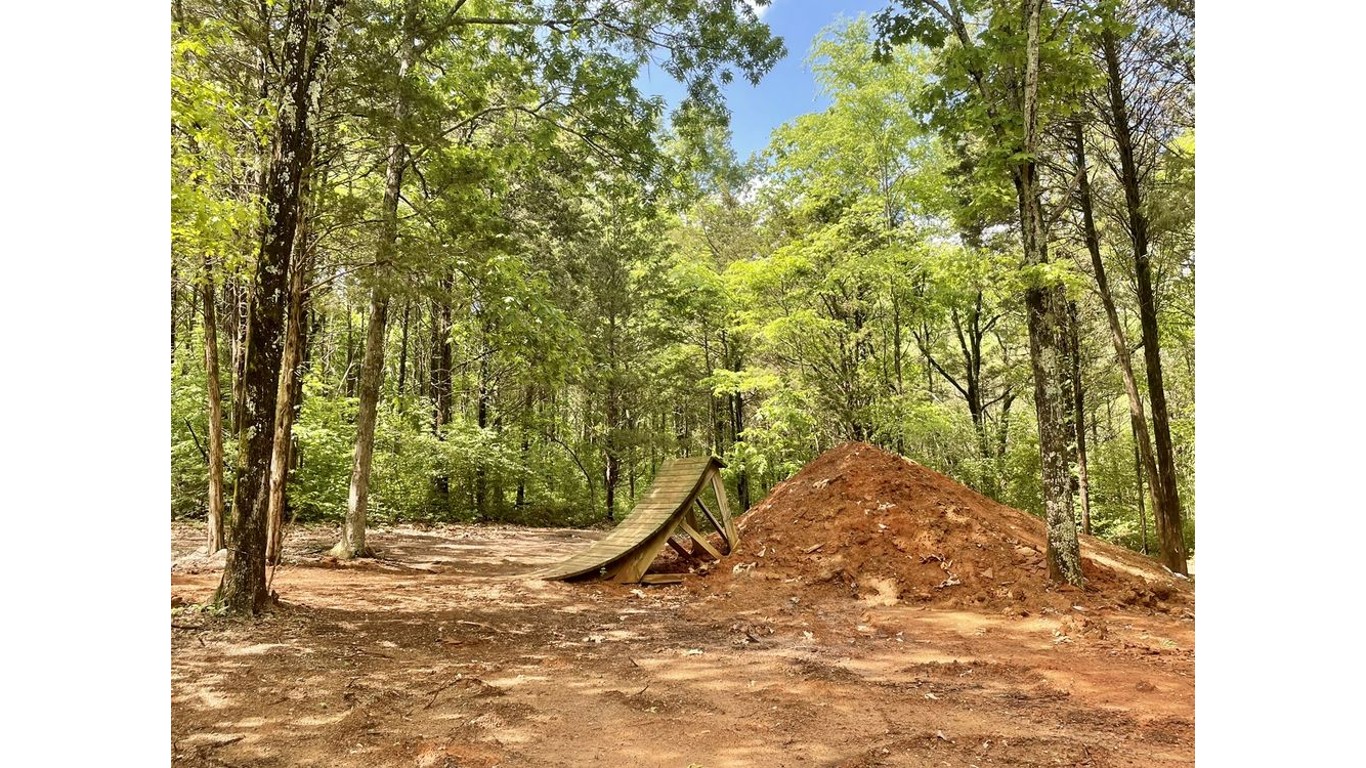
8. Hamilton Creek Park
> Location: Nashville, Tennessee
> 5-day avg. pollen count: 74.2 grains per cubic meter
[in-text-ad-2]
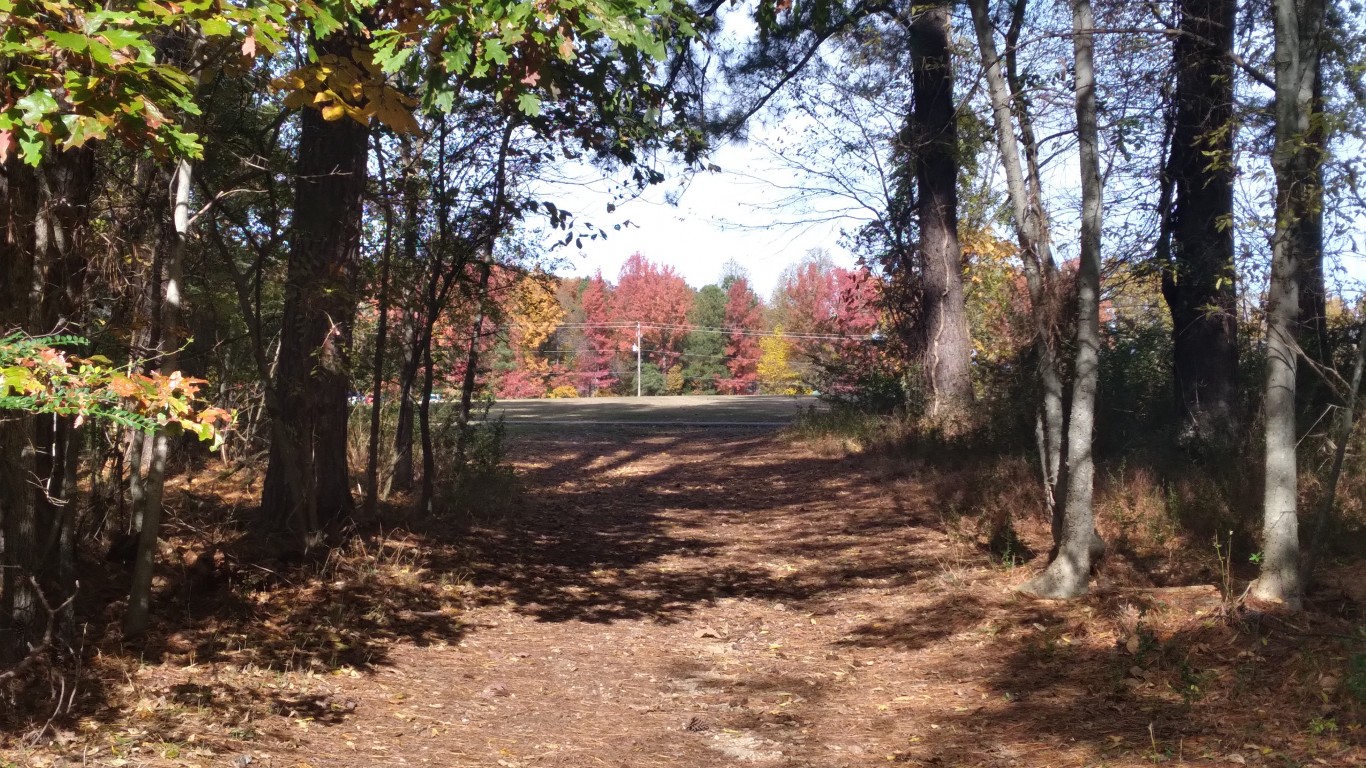
7. Shelby Farms Park
> Location: Memphis, Tennessee
> 5-day avg. pollen count: 78.2 grains per cubic meter

6. Shelby Bottoms
> Location: Nashville, Tennessee
> 5-day avg. pollen count: 81.8 grains per cubic meter
[in-text-ad]
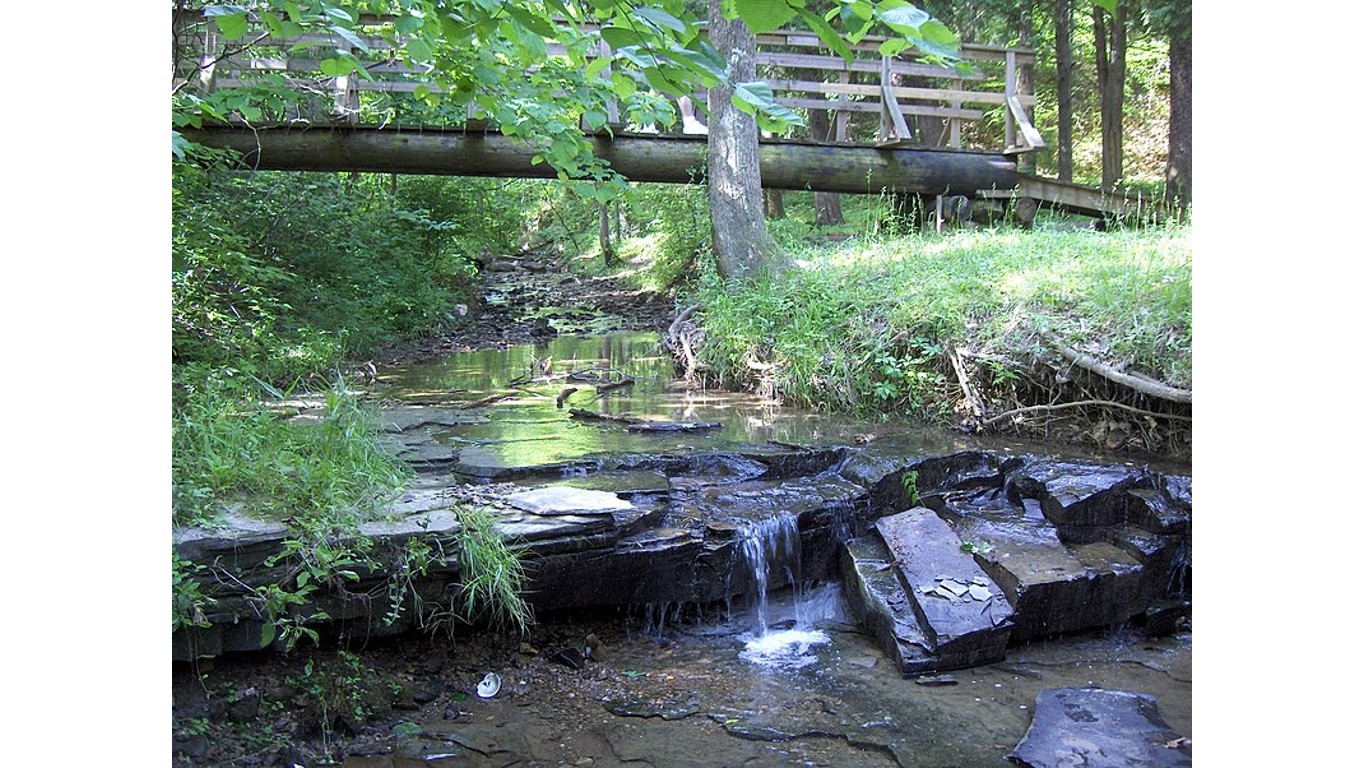
5. Jefferson Memorial Forest
> Location: Fairdale, Kentucky
> 5-day avg. pollen count: 87.6 grains per cubic meter
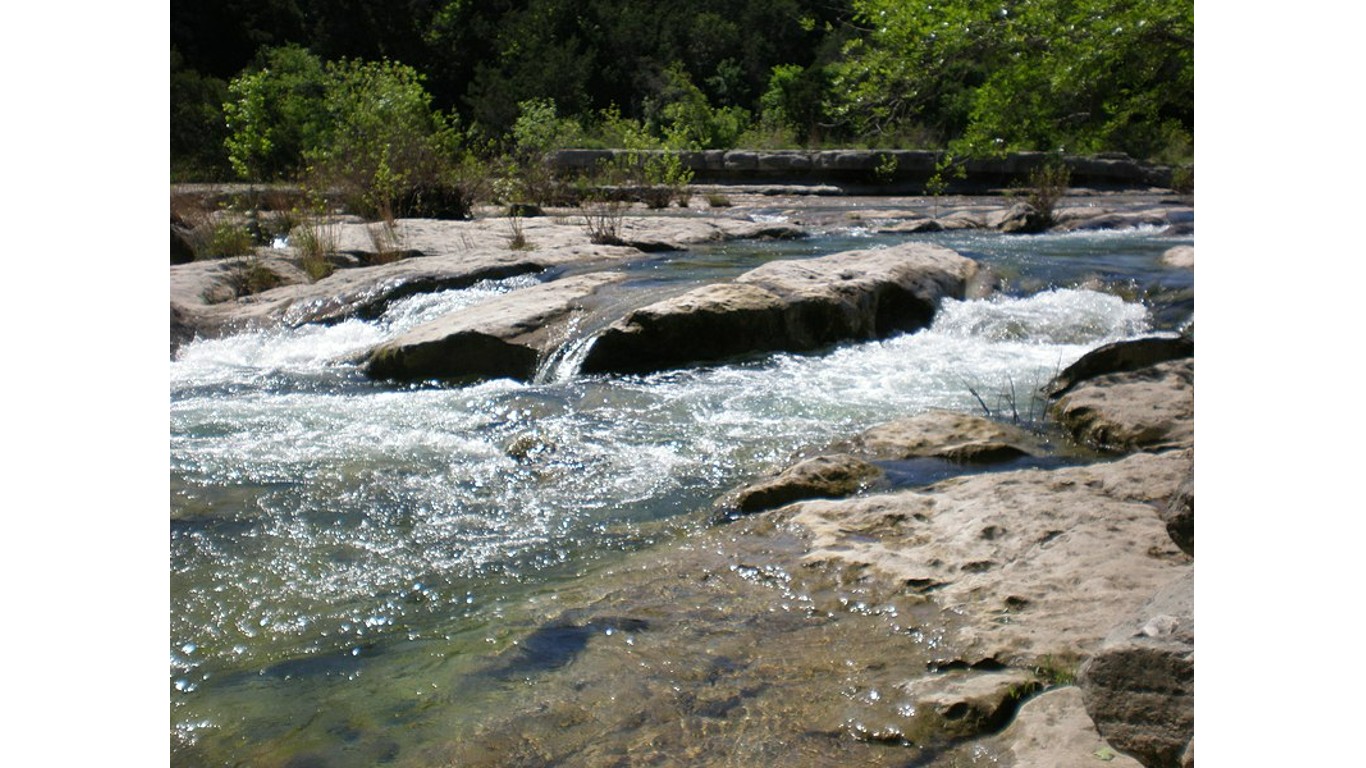
4. Barton Creek Greenway
> Location: Austin, Texas
> 5-day avg. pollen count: 106.8 grains per cubic meter
3. Lake Leatherwood Park
> Location: Eureka Springs, Arkansas
> 5-day avg. pollen count: 110.4 grains per cubic meter
[in-text-ad-2]
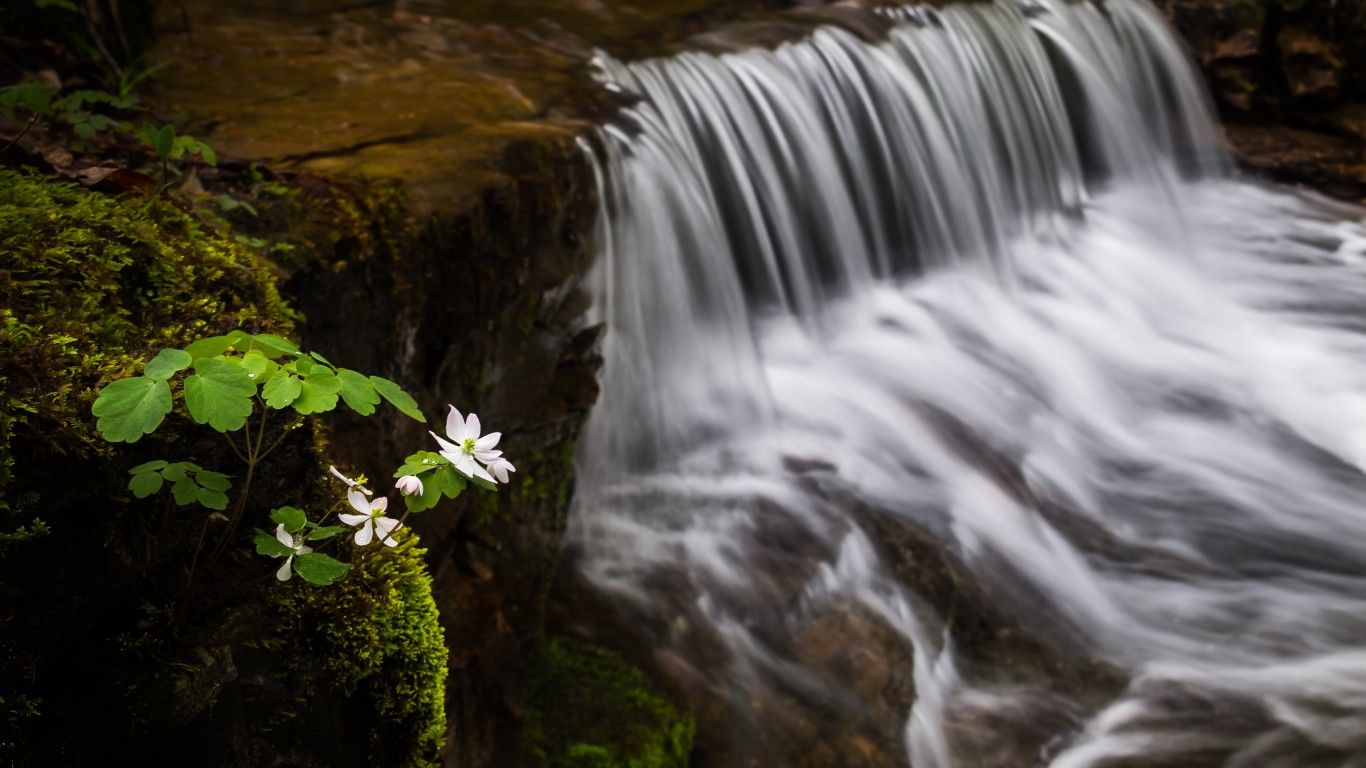
2. Beaman Park
> Location: Nashville, Tennessee
> 5-day avg. pollen count: 150.4 grains per cubic meter
1. Percy Warner Park
> Location: Nashville, Tennessee
> 5-day avg. pollen count: 162.4 grains per cubic meter
Are You Ahead, or Behind on Retirement? (sponsor)
If you’re one of the over 4 Million Americans set to retire this year, you may want to pay attention.
Finding a financial advisor who puts your interest first can be the difference between a rich retirement and barely getting by, and today it’s easier than ever. SmartAsset’s free tool matches you with up to three fiduciary financial advisors that serve your area in minutes. Each advisor has been carefully vetted, and must act in your best interests. Start your search now.
Don’t waste another minute; get started right here and help your retirement dreams become a retirement reality.
Thank you for reading! Have some feedback for us?
Contact the 24/7 Wall St. editorial team.
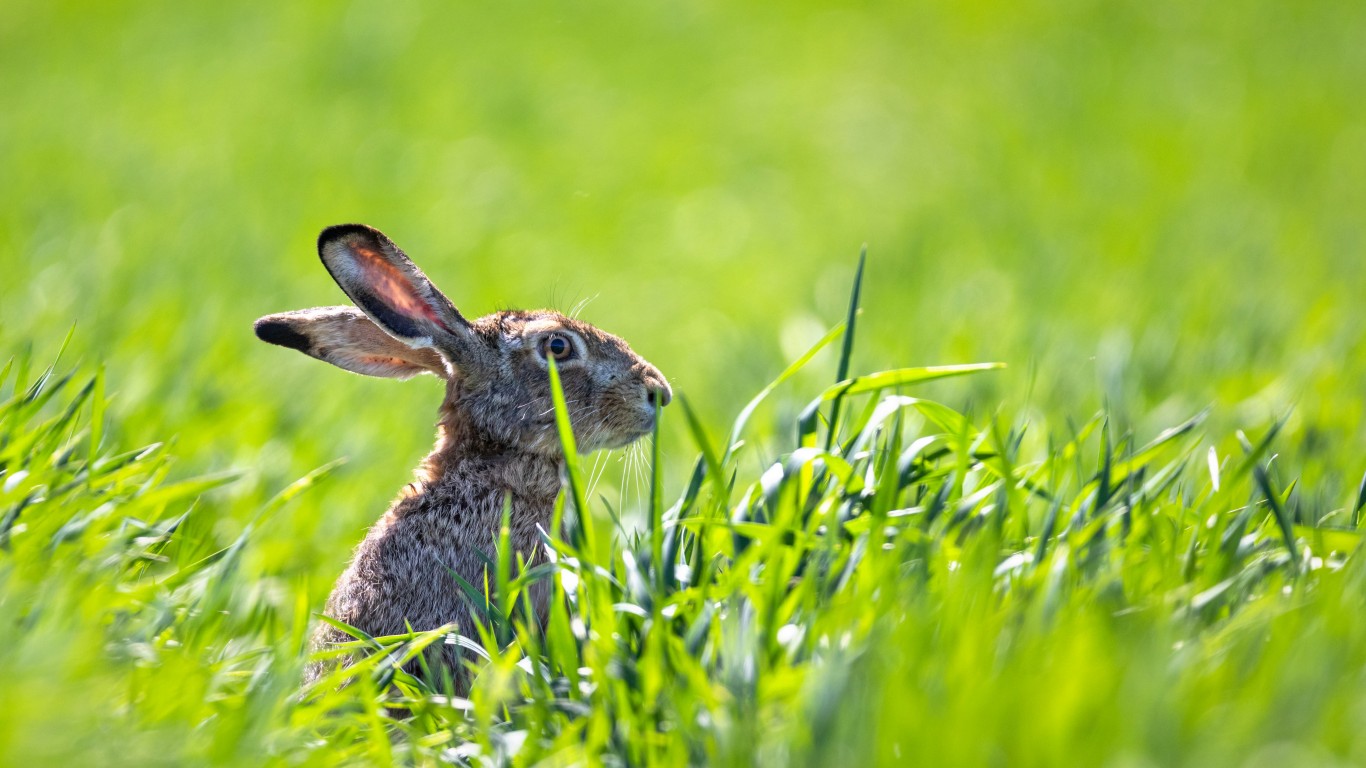 24/7 Wall St.
24/7 Wall St.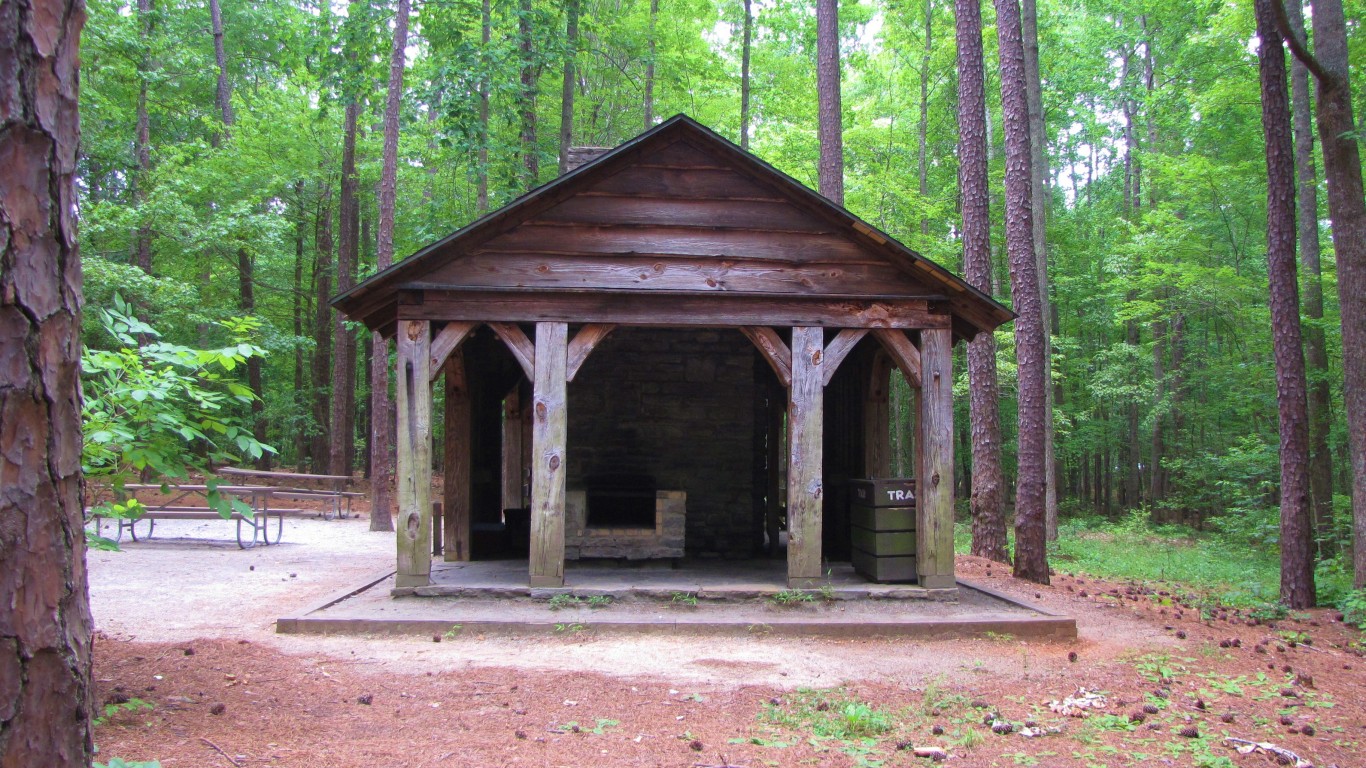
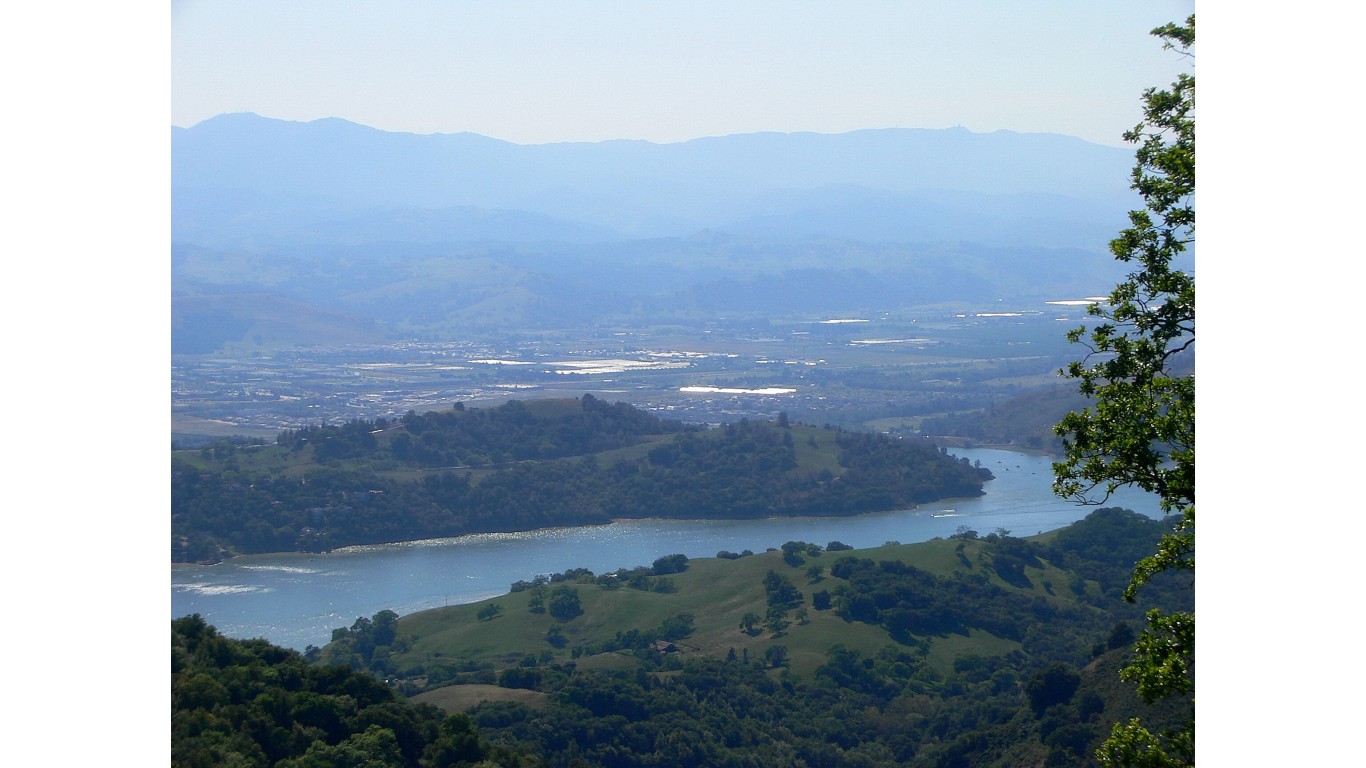
 24/7 Wall St.
24/7 Wall St.